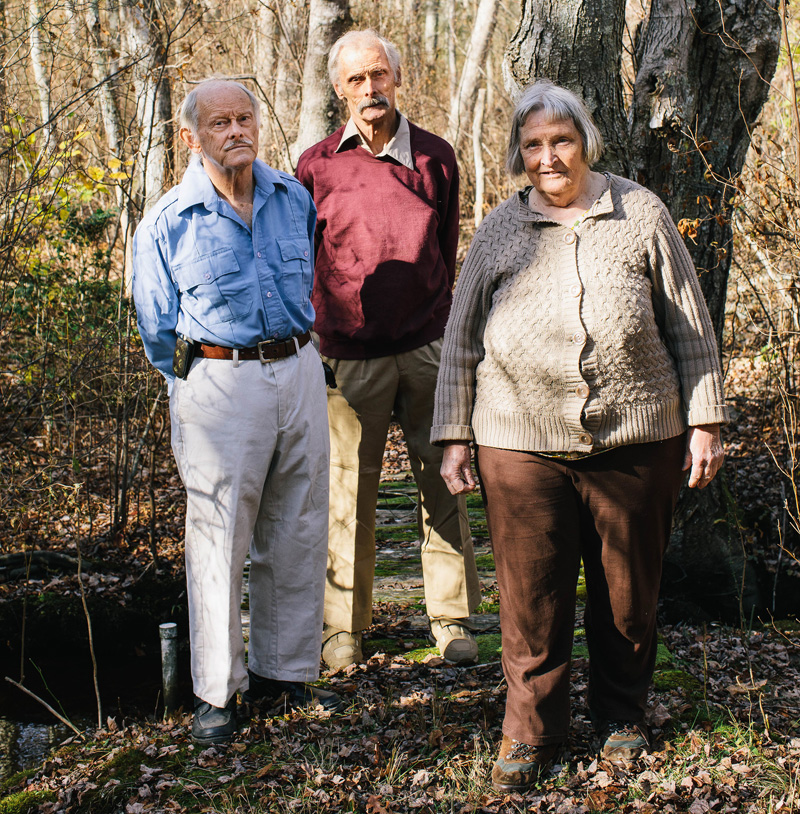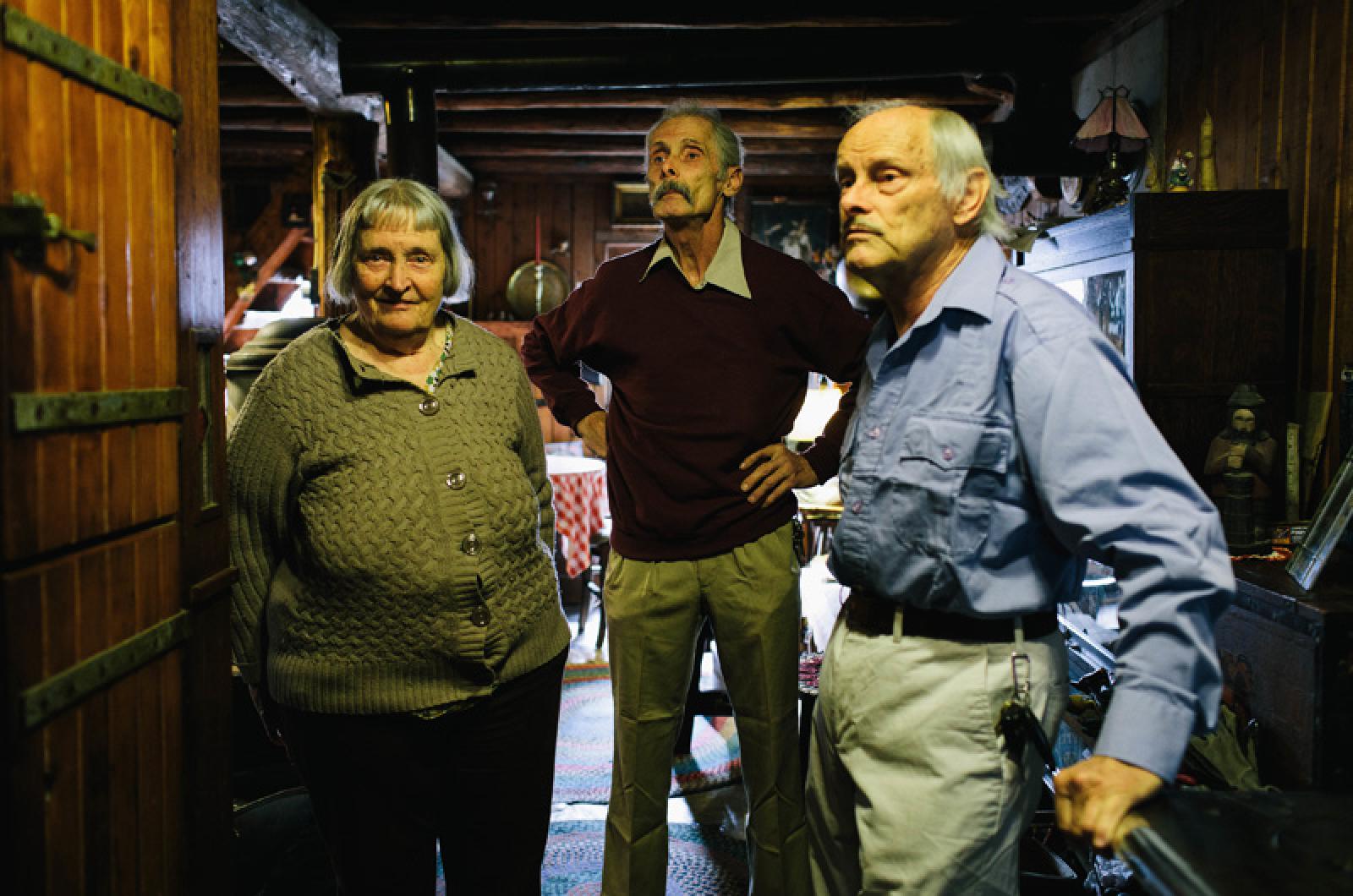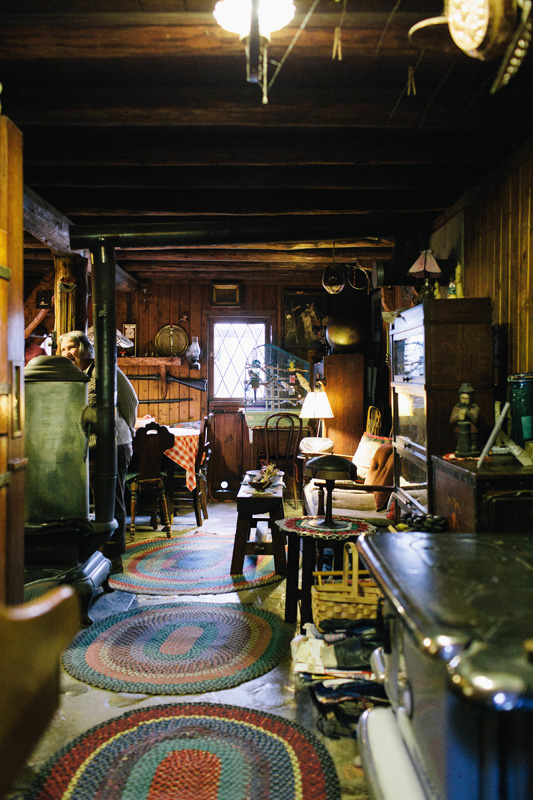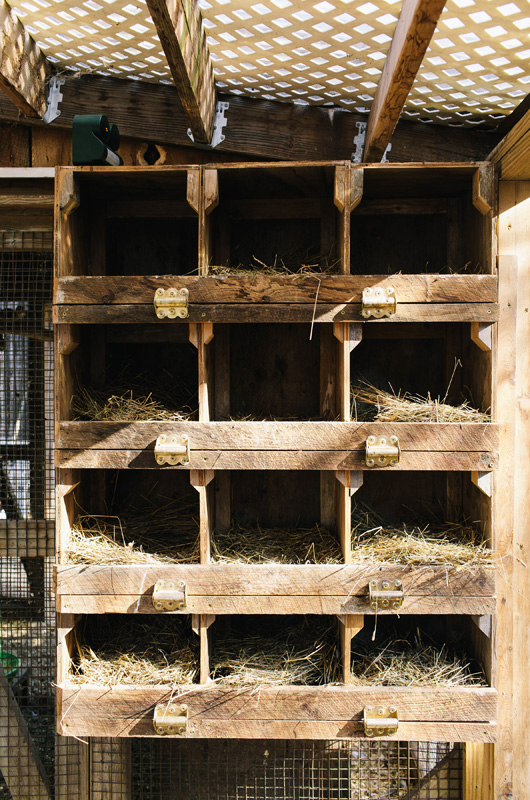On a clear November day, siblings Heidi, Peter and Frank Dunkl are getting organized. They have just returned from a five-week journey to check on their homes in Virginia and Florida. The trip was not a vacation. Both houses needed work. And the brakes on their car failed.
“Can you imagine not having brakes in a place with huge rolling hills?” Frank asks.
“It’s just an unbelievable jumbled mess of mountains down there,” Peter says of Virginia. “Mountains moving in every direction.”
“Fortunately,” Frank says, “we found this nice mechanic who came and fixed our disc brakes in about two hours for half the price of what we would have paid up here. Then we started talking to him about the work we were doing on our house and he asked us to come look at his mother’s house. Well, the next thing you know, we are signing on to make a stained glass window for her house.”
Peter gestures to the family’s shop. “We can do anything. We have blacksmith stuff, anvils, forges, saws, wood.”
“And because we have all this stuff, we also have an amazing mess,” Frank says, laughing.
Indeed, the Dunkl’s yard is chock full of old machinery, newer machines draped under tarps, stickered wood, stacked wood, scrap wood, a heap of metal. But, to see their Swiss style home, fashioned out of wood they harvested, planed, sanded and sawed replete with a slate roof that they installed, by hand, and looks like it was pulled straight out of a Hans Christian Andersen fairy tale is to recognize that for the Dunkls, these piles around their home are all potential.
“You have to understand when we arrived in New Rochelle, New York from Prague, we were starving,” Frank says. “Heidi was five, Peter was two and I was 50 weeks old. We all had rickets, calcium vitamin B-12 deficiencies, and undersized skeletons.”
Peter nods. “My nervous system was so shot that I couldn’t breathe. I was having seizures.”
Frank continues: “So we waste nothing.”
To honor the Dunkl’s way of life and being an integral part of the Island community for so long, they are this year’s recipients of the Creative Living Award, awarded by the Permanent Endowment of Martha’s Vineyard.
In addition to their creative prowess, the Dunkls have a menagerie to protect and care for. Inside the house, they keep two cockatiels and two parakeets. Outside, they have built a small pond for their 14 Cayuga ducks and “a whole bunch of freeloaders,” Frank says referring to the wild mallard ducks that have also made the pond their home base. They also have 11 chickens, one large white goose and 10 guinea fowl. The Dunkls have built houses for each breed of bird. The complex of shacks and huts that abut each other is nearly as large as their house.
“You either love or hate guinea fowl,” Frank says. “I just love them. They are such clowns. Absolutely nuts. One minute they are honking. The next minute they are tweeting. They make me laugh.”
“And if you have a dozen of them, they’ll scare a raccoon off,” Heidi adds. “Our guinea fowl once cornered a German shepherd. They circled the poor dog, hollering their heads off.”
Heidi spies a jonquil coming up in the dirt near their front door. “Oh, we need to transplant that. I like daffodils and jonquils. The rabbits and deer eat the crocuses and tulips.” She gazes around. “When we had fewer holly trees, our blueberry bushes thrived. We used to pick 200 quarts of berries at one time.”
“Two hundred quarts,” Peter echoes.
The three head back inside, talking amongst themselves about things that need to get done. Heidi points to a large stack of papers in the front room that needs organizing. “My winter project.”
Peter nods. “One of my goals is to get this place into shape. The way I remember it.” He laughs. “We’re always talking about what we want to do. We’ll see if we live that long.”
As they move around the house, showing off family heirlooms as well as the woodstove that needs to be replaced along with the wood burning kitchen stove that needs to be replaced, and relaying their family history and childhood, it is hard to believe that it has all happened in one lifetime. The siblings were born in Prague; Heidi is 77 and the oldest, Peter is 72, and Frank is 71. Their mother, Gudrun Daub, was American. She was a teacher and moved to Germany to study the language to advance her teaching career. There she met Heinrich Dunkl, a medical student from Moravia and fell in love. Soon after they got married, World War II began and Heinrich was drafted at gunpoint into the German army.
“He came home a bitter man,” Heidi remembers. “The war destroyed him. He could not be a husband. He could not be a father.”
“This is why we believe in non-violence,” Frank says. “We know the tragedy of violence. We are vegetarians. We go out of our way not to hurt anyone. We practice simple signs of respect like saying sir or madam. To hold the door for someone. It is our family’s creed.”
Desperate for help with her three small children, Gudrun Daub Dunkl called her parents who were living in New Rochelle, N.Y. They said she could come home, but she would be responsible for the kids’ medical bills and clothing and her brother would be in charge of raising the kids. After a few jobs, their mother found a career as a secretary for the president of a small, but very successful optical company that provided the lenses for NASA and the early days of the space race.
“Their lenses helped us understand the atmosphere on Mars,” Frank says.
One of Gudrud’s key jobs was translating technical reports from German to English and vice versa.
“Her work was impeccable,” Frank brags. “And because of this, her boss treated her like a queen.”
Meanwhile, the children began a new life in New York.
Frank laughs. “Beyond school, our uncle always had a project for us. For a while, when we were a bit older, he had us work with an all black wrecking crew who took down houses and warehouses by hand. He wanted to keep us out of trouble, but he also wanted to teach us that we could work with anyone. That we should always treat everyone with respect no matter what.”

The young siblings were also trained to be musicians.
“Our great grandfather was Johann Chlupsa,” Heidi explains. “When he was 10 or 11 his parents were so poor that they could not feed him. So they gave him a violin and said, go play for money. He walked on foot, found places to play for food and lodging. I think there was an adult and a few kids walking around together. This is in the 1870’s.”
Peter jumps in to help with the story. “He walked from Bohemia to Egypt. And back!”
Frank continues: “He became a violin virtuoso. He was the principal violinist for the New York Metropolitan Opera and the New York Philharmonic.”
“He was part of the Cultural Revolution here in America,” adds Peter. “He translated and wrote out the instrumental parts for Verdi, Dvorak and Tchaikovsky. So music was very important in our family.”

“His experience has taught us that you can travel the world, hat in hand,” Frank says. “And that is why we are not the best business people. We are from artists.”
Heidi contradicts Frank. “Well, the Dunkl side was business minded. Our grandfather was a big deal in the textile industry in Czechoslovakia.”
Frank nods. “That’s true. You couldn’t get anything done in that business without him being involved.”
“And our grandfather Daub was a bank executive,” Heidi continues. “One hundred per cent German and one hundred per cent nasty.”
Peter goes back to the music. “By the time we were in our late teens, we were playing the French Horn in the New Rochelle Symphony Orchestra. We were making $65 dollars an hour.”
“Had we stayed in New York, we could have been making $200,000 a year salaries,” Frank says. “We could have had a comfortable life style. But instead we are here, scratching it out. But there are no guarantees in life.”
In the late 1960s the land near their house in New Rochelle was turned into an office park. Larger and larger planes were flying overhead to land at LaGuardia and Kennedy airports and more manufacturing moved into the neighborhood. The neighborhood went from pastoral to loud and dangerous.
“We could not walk outside after eight at night,” Heidi remembers. So the Dunkls looked around, considering areas around the entire Northeast and found an undeveloped patch of land off of North Road in Chilmark. They built their house carting materials to the site down a mossy path and over a small bridge straddling the Mill Brook. They moved to Martha’s Vineyard full time in 1973.
In their 44 years on the Island, the Dunkls have fixed cars, built extraordinary bridges, made stained glass windows, created a bottled water business, maintained roads, sold firewood, repaired machinery, engineered machinery, revamped clocks, done well work, stone work, shingling, framing, have worked on just about every aspect of a house, and played music. As they list more and more jobs, it seems there is nothing they cannot do. Or learn to do.
Frank sums up their philosophy “Our creed, beyond non-violence, is that every day is a learning opportunity. Spend time with children. Spend time with elders. As we get older, we see the value of our friends. And we continue to believe that we are never too old to learn. Little things mean so much. Be helpful. Be kind. Be humble.”
“My only regret is that Heidi didn’t get to pursue her weaving business,” Peter says. “Her stuff was just beautiful. She’s an artist.”
To underscore the point, the brothers show off an extraordinary wooden bust that Heidi carved. Then the conversation turns to the Flying Horses which the Dunkls restored, the bridges they’ve built, the Volkswagens they’ve repaired. Then they talk about what projects are ahead: baking and sending a gingerbread house for a young girl in Virginia, creating a new bedroom for Heidi, shoring up the bird houses for the winter, making a pumpkin pie for Thanksgiving.
Heidi laughs at her brothers who keep listing more and more things to do. “I should say that in between all these projects, we do have a good time.”
The Creative Living Award ceremony takes place on Tuesday, Nov. 28 beginning 5 p.m. at the Portuguese American Club in Oak Bluffs.











Comments (11)
Comments
Comment policy »